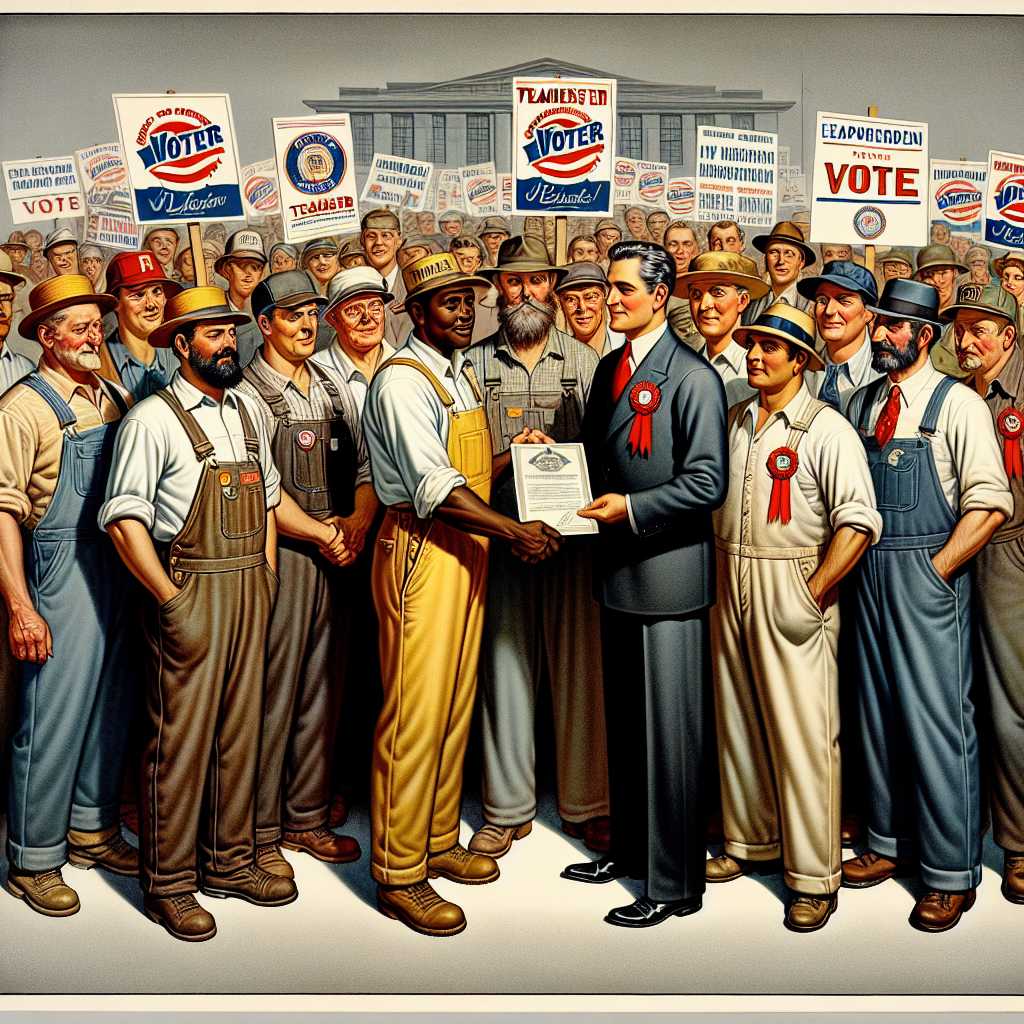Impact of Teamster Endorsement on Labor and Politics
The International Brotherhood of Teamsters, one of the largest and most influential labor unions in North America, has had a historic role in shaping labor politics and collective bargaining agreements for well over a century. This article investigates the significance of the Teamsters’ endorsements, particularly in political campaigns, and how these endorsements affect labor relations, campaign dynamics, and broader political landscapes.
The History and Influence of the Teamsters Union
The Teamsters union, founded in 1903, has grown to represent a diverse range of occupations and industries, with an estimated 1.4 million members as of my knowledge cutoff date in 2023. Its origins lie in the amalgamation of several regional local unions of team drivers — those who drove teams of horses. Over the years, it has extended its reach to virtually all types of transportation and logistics jobs, along with other professions.
An endorsement from the Teamsters carries weight due to its storied history of activism and its considerable financial and human resources. The leverage that comes from a united workforce with the organizational structure to support strikes, negotiations and political advocacy campaigns makes the Teamsters’ endorsement sought after by politicians.
Criteria for Teamsters’ Endorsements
The process of granting a Teamsters’ endorsement involves careful consideration of candidates’ or policy proposals’ alignment with union priorities. These might include labor standards, workplace safety regulations, minimum wage levels, healthcare benefits, retirement security, and support for collective bargaining rights.
Endorsements are typically made by the union’s leadership but only after considerable discussions involving local chapters representing workers’ interests at a closer level. This ensures that endorsements reflect not only national priorities but also concerns that are pertinent at the regional or local level.
Teamsters’ Endorsements in Political Campaigns
Politicians on all levels — local, state, national — seek the Teamsters’ backing for their election campaigns due to both the direct support they would receive as well as the signal such an endorsement sends to voters about candidates’ commitments to labor issues. When a candidate receives an endorsement from the Teamsters, they inherently gain access to an organized base for campaign volunteering including canvassing and phone banking, as well as potential financial support through contributions from Union PACs.
While historically the Teamsters have been identified with supporting predominantly Democratic candidates due to shared policy goals on labor issues, they have also been known occasionally to endorse Republican candidates who align with specific trade or economic policies favorable to their members.
Effects of an Endorsement on Policymaking
The influence of a powerful union such as the Teamsters extends into policymaking processes. Legislators vying for union support must often consider union positions when drafting legislation or casting votes on issues important to organizational members. Policymakers receive not just support during campaigns but also an expert point of contact to consult on complex issues concerning labor law and employee welfare once elected.
When successful in elections, endorsed candidates may feel obligated to advocate for legislation pro-labor laws aligning with Teamster priorities. Such dynamics increase aspects of union clout within legislative chambers which can be seen both as a mechanism for worker representation by advocates or undue influence by critics.
Controversies Surrounding Union Endorsements
Political endorsements by unions can create controversy both inside and outside the labor movement. Internally, there can be disagreement among members about the appropriate candidate or policy to support. Externally, critics may argue that union endorsements give labor organizations undue influence over democratically elected representatives, potentially prioritizing union goals over substantive or broad-populace considerations.
However, proponents assert that such endorsements are integral to preserving workers’ rights against the influence of large corporations and other interests that may not prioritize worker welfare.
Community Impact of Teamsters Endorsements
In local elections especially, an endorsement from the Teamsters can raise awareness on community issues such as municipal waste management or transportation infrastructure — areas where Teamster-represented workers are directly involved. They help keep these issues within public discourse while also ensuring that their importance is understood through a worker-oriented perspective.
